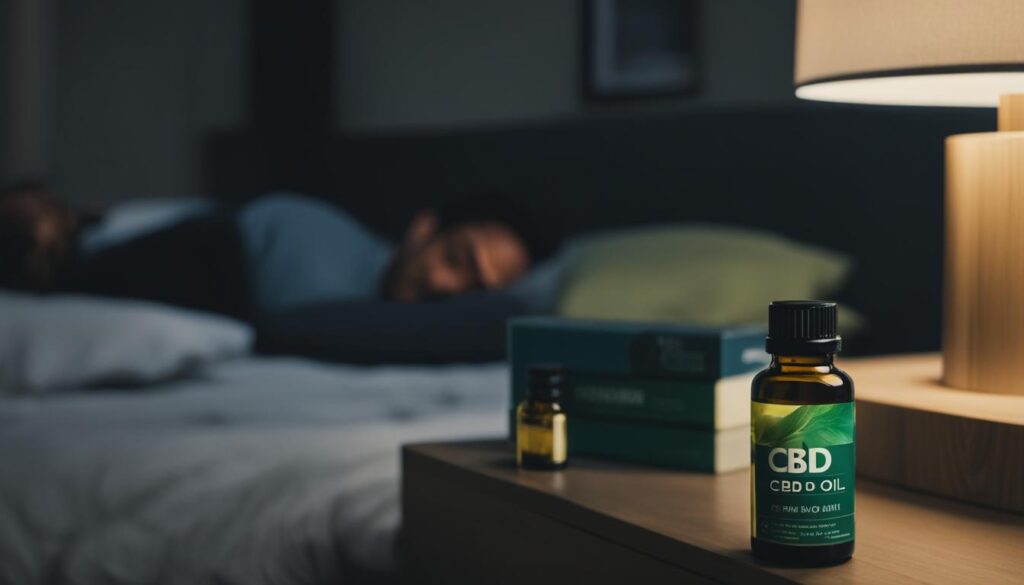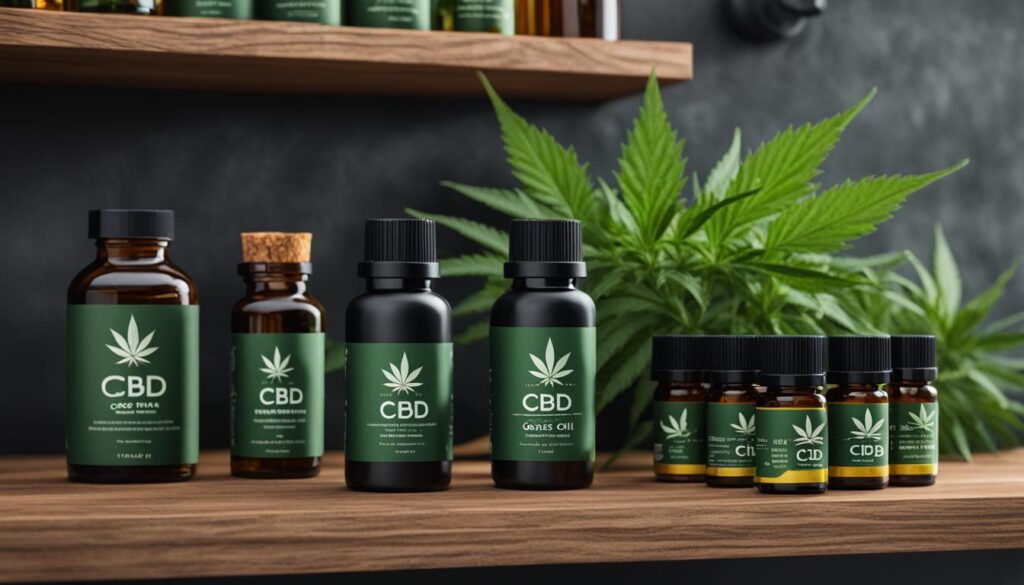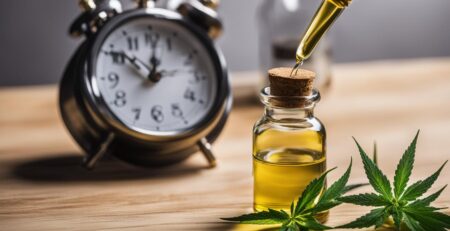Ultimate Guide: How to Use CBD Oil Effectively
Delving into the world of CBD oil can often seem like navigating through a labyrinth of choices. With a myriad of options for the best CBD oil products available for sale, understanding how to use CBD oil effectively is essential for those seeking relief and wellness through this natural remedy. Embarking on a CBD journey requires knowledge of various administration methods, each tailored to meet specific health needs without the psychoactive effects of THC.
Before experimenting with CBD oil, it's important to engage with a health professional who can provide guidance based on experience and limited but growing clinical evidence. The landscape of medical cannabis is complex due to limited TGA-approved products, and in the United States, varying state regulations underscore the need for informed decision-making when finding CBD oil for sale. As research unfolds and testimonials increase, many turn to CBD oil as a beacon for relief, wellness, and balance in an increasingly wellness-focused society.
Key Takeaways
- Consult a healthcare professional to tailor CBD use to your condition.
- Vaping CBD oil may provide quicker relief for certain conditions.
- Sublingual and topical applications offer discretion and targeted effects.
- Be mindful of the limited TGA-approved CBD guidelines and potential side effects.
- Selecting the best CBD oil products is subjective and should be based on individual needs and health goals.
- Typically, CBD oil products contain minimal THC, focusing on the beneficial aspects without psychoactive outcomes.
Understanding CBD Oil and Its Health Benefits
As an increasing number of individuals seek natural remedies for their ailments, the spotlight turns towards Cannabidiol, more commonly known as CBD oil. Recognized for its non-psychoactive properties and derived from the hemp plant, CBD oil is touted for its potential therapeutic applications. Notably, the benefits of CBD oil have been associated with easing symptoms related to CBD oil for anxiety and offering CBD oil for pain relief.
While clinical trials continue to decipher the full scope of CBD oil's efficacy, early research is promising. Epidyolex, a CBD-based medication, has cleared rigorous standards to be medically approved for certain conditions. However, for a wider range of symptoms, the anecdotes of people experiencing relief cannot be overlooked. Studies have pointed to CBD's interaction with the body's endocannabinoid system, hinting at its capability to modulate pain perception and possibly even anxiety.
- Individual reports suggest pain modulation, particularly in chronic conditions such as fibromyalgia.
- Research indicates potential anxiolytic properties, offering relief for those with anxiety disorders.
| Condition | Evidence | Effect |
|---|---|---|
| Fibromyalgia | 2021 Survey | Reduction in pain symptoms |
| Anxiety | 2019 Studies | Decrease in anxiety levels |
| Chronic Pain | Anecdotal Reports | Potential relief from symptoms |
While the benefits of CBD oil are being explored, the evidence thus far paves the way for further investigation into how it interacts with physiological pathways to provide relief. Current findings encourage a cautious but optimistic approach towards integrating CBD oil into therapeutic protocols.
Exploring the Various Forms of CBD Oil
With a multitude of CBD products on the market, understanding the nuances between each type is crucial for consumers. When deciding how to choose CBD oil, one must consider not only the form but also the specific attributes that differentiate full-spectrum, broad-spectrum, and isolate CBD oils.
The realm of CBD is vast, encompassing everything from easy-to-use capsules and discrete lozenges to topical creams for localized relief. Tinctures offer a more measured approach, often preferred by those who seek sustained effects, while vape cartridges facilitate quick delivery suited best for rapid onset of benefits.
Types of CBD Oil Products
- Vape Cartridges for rapid onset
- Tinctures for precise dosing
- Capsules for convenience and consistency
- Lozenges for easy, slow release
- Topicals for targeted, external application
Comparing Full-Spectrum, Broad-Spectrum, and Isolate
The terms full-spectrum, broad-spectrum, and isolate define the cannabinoid content within CBD oil, each carrying distinctive features that may influence consumer choice.
| Type | Contains | Benefits | Best For |
|---|---|---|---|
| Full-Spectrum CBD Oil | CBD, THC, other cannabinoids, and terpenes | “Entourage Effect” – potential for enhanced therapeutic benefits | Individuals not restricted by THC consumption |
| Broad-Spectrum CBD Oil | CBD, other cannabinoids, and terpenes, no THC | Preserved hemp plant components without THC | Users seeking to avoid THC entirely due to sensitivities or legal concerns |
| Isolate CBD Oil | Pure CBD | No risk of THC-induced effects, consistent CBD content | Individuals requiring specific, high-dose CBD therapy or who undergo drug screening |
As consumers quest for the best CBD experience, understanding these distinctions informs their decisions, aligning product attributes with personal needs and expectations.
How to Use CBD Oil for Optimal Absorption
When it comes to maximizing the effectiveness of best CBD oil products, the method of absorption can significantly impact your experience. It's not just about choosing high-quality CBD; it's also about understanding how to use CBD oil in ways that ensure its optimal delivery into your bloodstream. Let's delve into the various methods and their absorption rates so you can select the one best suited to your needs.
-
Vaping CBD Oil: For those looking for rapid relief, vaping might be the avenue to explore. The inhalation process allows CBD to enter the bloodstream quickly, typically taking effect within minutes. This method is ideal for those dealing with acute conditions where immediate results are paramount.
-
Sublingual Drops: If discretion and duration are your priorities, sublingual consumption, involving placing oil drops under the tongue, could be your method of choice. This method bypasses the digestive system, offering a slower onset than vaping but with longer-lasting effects, typically kicking in within 30-90 minutes and persisting for several hours.
-
Topical Applications: For localized pain or specific skin conditions, topical CBD products offer targeted relief. Applied directly to the skin, the CBD interacts with local cannabinoid receptors. Topical CBD typically offers anecdotal evidence of immediate relief, although more research is needed to fully understand the scope of its effects.
Incorporating best CBD oil products into your regime requires an understanding of how different application methods influence absorption. Whether you choose to vape, apply sublingually, or use topically, remember that onset times and effectiveness can vary greatly. To determine the most effective way to use CBD oil for your unique situation, consult with a healthcare professional well-versed in CBD-related matters.
Determining the Proper Dosage of CBD Oil
Embarking on the journey of CBD oil usage often leads to questions of dosage. Unlike many conventional medications, there isn't a one-size-fits-all approach when it comes to the dosage of CBD oil. It's important to start with a controlled dose, closely monitor the effects, and incrementally adjust the amount as needed to suit your specific health requirements.
Starting with Low Dosage
Initiating CBD oil intake with a low dosage of CBD oil is not just cautious, but prudent. Begin with the smallest suggested dose listed on your CBD product, be it a tincture, capsule or topical. Closely monitoring your body's reaction to the compound is essential, allowing for individual tolerance and need to guide subsequent dosing.
Adjusting CBD Dosage Based on Effects
After starting with a minimal dose, the following step in the CBD journey is fine-tuning your intake based on your body's response. If the desired effects are not achieved, or if you experience any side effects, it is critical to adjust the dosage of CBD oil accordingly. Consult your healthcare provider to ascertain the optimal dosage, especially in the lack of standard dosage guidelines, ensuring personalized and effective treatment.
Remember, the aim is to find the dosage that confers the benefits you seek without eliciting any undesirable effects. It's a balance that requires patience, observation, and sometimes, guidance from a medical professional. With careful calibration, most individuals can find their ideal dosage, allowing them to enjoy the potential benefits of CBD oil.
How to Use CBD Oil for Specific Ailments
The quest for alternative therapies has led many to embrace CBD oil—a natural compound gaining attention for its potential health benefits. Understanding how to apply CBD oil for various conditions is crucial, as its purported therapeutic properties may address various ailments effectively. Here we explore the use of CBD oil for anxiety, as a potential source of cbd oil for pain relief, and as an aid for those struggling to find quality cbd oil for sleep.
Using CBD Oil for Anxiety and Stress Relief
CBD oil for anxiety is one of the most common uses of this versatile substance. Anecdotal evidence and early phase research suggest that CBD might have anxiolytic properties, potentially making it a useful tool for managing stress and anxiety.
One study noted that CBD could reduce anxiety in subjects by interacting with serotonin receptors in the brain, a discovery that could pave the way for future treatment possibilities.
Addressing Chronic Pain with CBD Oil
For those seeking cbd oil for pain relief, this natural remedy has shown promise. CBD's ability to interact with the endocannabinoid system may offer respite for chronic pain sufferers, a welcome alternative to traditional analgesics that may come with unwanted side effects.
- Cannabinoid Receptors: Presence in areas associated with pain sensation could be key to CBD's pain-relieving effects.
- Anti-inflammatory Properties: CBD may also reduce inflammation, further contributing to pain relief.
CBD Oil as a Sleep Aid
Insomnia and sleep disruption are pervasive concerns, and CBD oil could potentially be part of the solution. The calming effects of CBD have led to its exploration as a tool for improving sleep, assisting those who struggle to maintain a consistent sleep cycle.
CBD oil for sleep is being evaluated for its potential to influence sleep latency, duration, and quality, offering hope for more restful nights.
As research continues to advance, our understanding of how to best use CBD oil for these conditions will deepen. For now, the evidence points to the feasibility of using CBD as a complementary approach to managing anxiety, pain, and sleep disorders. Always ensure to consult with a healthcare provider before starting any new treatment regimen including CBD products.
Topical vs. Ingestible CBD Oil: Pros and Cons
As the CBD market flourishes, consumers looking for CBD oil for sale are presented with a choice: topical or ingestible applications. Understanding how to use CBD oil in these two forms can guide you towards the product that best aligns with your health needs and personal preferences.
Topical CBD products, including creams and lotions, are heralded for their ability to provide targeted relief. These are applied directly to the skin and are particularly suitable for acute muscle aches and joint pains. In contrast, ingestible CBD oil, available as capsules and tinctures, affects the entire system and can contribute to overall well-being.
The decision between topical and ingestible CBD often depends on the specific health concerns you are addressing. In this comparison, each method's unique properties should be carefully considered.
| Topical CBD Oil | Ingestible CBD Oil | |
|---|---|---|
| Method of Delivery | Applied to the skin | Taken orally |
| Pros | Localized relief, does not enter bloodstream | Systemic effects, long-lasting |
| Cons | May be less effective for non-skin related issues | Delayed onset of effects, potential digestive breakdown |
| Best For | Acute and localized pain, such as arthritis | Overall wellness, anxiety, sleep disorders |
| Considerations | Ideal for those averse to oral consumption | Must consider digestive timing and dietary interactions |
While both forms offer unique advantages, they also come with caveats. Topical CBD oil's prompt relief may be restricted to the application area, whereas ingestible CBD oil, though more comprehensive in its effects, requires digestion and metabolism, which could impact its efficacy. How you choose to partake in CBD can reflect your lifestyle, immediate needs, and personal preferences for health enhancement.
To maximize the effectiveness of your chosen method, it is advised to explore reputable sources where CBD oil for sale is transparent about sourcing, manufacturing, and lab testing—to ensure you're receiving the quality you're searching for.
The Science Behind CBD Oil and Pain Management
Exploring the intricate mechanisms of pain and the burgeoning role of natural remedies, scientists have begun to unravel the complex relationship between CBD oil and its potential for pain management. As the spotlight on the benefits of CBD oil intensifies, particularly regarding CBD oil for pain relief, empirical and theoretical understandings pave the way for novel approaches to chronic pain.
Research on CBD’s Analgesic Effects
Clinical studies and patient anecdotes increasingly suggest that CBD oil may offer a balm for the ceaseless discomfort that accompanies chronic conditions. Research delves into various spectrums of pain—from the all-encompassing ache of fibromyalgia to the sharp stings of neuropathic pain—seeking to establish a foundation for CBD's analgesic properties.
A 2021 study echoed by many within the scientific community suggests that participants with fibromyalgia experienced a noteworthy decline in pain intensity when using CBD oil, indicating promising analgesic effects.
How CBD Interacts with the Endocannabinoid System in Pain Relief
At the core of CBD's potential influence on pain lies the body's endocannabinoid system (ECS), a vast network of receptors that plays a pivotal role in regulating pain, among other physiological processes. CBD appears to modulate this system, attenuating the sensations of pain through its therapeutic interactions.
| Condition | Impact of CBD on ECS | Reported Reliefs |
|---|---|---|
| Fibromyalgia | Reduction of pro-inflammatory markers | Lowered pain levels |
| Neuropathic Pain | Modulation of pain signaling pathways | Decreased intensity of pain sensations |
| Endometriosis | Interaction with cannabinoid receptors in endometrial tissue | Alleviation of inflammatory pain |
CBD's interaction with the ECS reaches beyond a singular pathway of pain relief and extends its branches into various aspects of discomfort and disturbance, often associated with chronic pain conditions. This holistic approach renders CBD a candidate of interest in the realm of pain management and catapults it into ongoing pharmacological conversations.
Choosing Quality CBD Oil: What to Look For
For those exploring how to choose CBD oil, recognizing premium products is fundamental to ensuring both safety and efficacy. Factors such as product composition, extraction methods, and third-party lab testing are critical when selecting the best CBD oil products. As consumers become more discerning, the choice between full-spectrum, broad-spectrum, and isolate becomes increasingly significant.
When examining CBD oil, the role of extraction methods cannot be overstated. Superior extraction techniques, such as CO2 extraction, ensure a pure and potent product by preserving the delicate cannabinoids without the use of harmful solvents. Consumers are advised to seek out brands that are transparent about their extraction processes, as this is often a telltale sign of quality.
Being informed about the cannabinoid spectrum is also integral. Full-spectrum oils encapsulate a variety of cannabinoids, including THC, which may work together to enhance the therapeutic effects—an occurrence known as the entourage effect. Broad-spectrum oils contain a range of cannabinoids but typically exclude THC, making them an ideal middle ground for those who want to avoid the psychoactive compound. Lastly, CBD isolate products offer nothing but pure CBD, appealing to those who must adhere to strict no-THC policies or who may be sensitive to other hemp-derived compounds.
Crucially, the reputability of CBD oil hinges on third-party lab testing. Certificates of Analysis (COAs) provided by independent labs offer an unbiased assessment of the CBD product's quality, potency, and safety, including the verification of cannabinoid content and the absence of contaminants such as pesticides, heavy metals, and molds.
| Quality Aspect | Description | Impact on Selection |
|---|---|---|
| Extraction Method | CO2 extraction favored for purity and safety | Indicates a high-standard product |
| Cannabinoid Spectrum | Full-spectrum, broad-spectrum, and isolate options | Affects legal THC concerns and potential therapeutic outcomes |
| Third-party Lab Testing | Analysis for potency and absence of hazardous substances | Verifies the authenticity and purity of the CBD oil |
In conclusion, a careful approach to choosing a CBD oil includes considering the oil's spectrum, scrutinizing extraction methods, and valuing third-party lab reports. This meticulousness in selection not only caters to the legal landscape surrounding cannabis products but also enhances the therapeutic potential of the oil chosen, thereby, yielding a tailored and optimal CBD experience.
Utilizing CBD Oil for Better Sleep: Techniques and Tips
Improving sleep quality has become a substantial health goal for many, and incorporating cbd oil for sleep into nighttime routines is being embraced as an effective strategy. While responses vary, consistent use of CBD oil as part of a sleep hygiene practice may encourage restfulness and aid those struggling to achieve deep, revitalizing sleep.

Personal experimentation with form, timing, and dosage of CBD oil is often suggested to identify the approach that best suits individual sleep needs. Adopting best practices for using CBD oil and understanding its role in sleep regulation can contribute to longer, more restful nights.
Best Practices for Using CBD Oil Before Bed
When considering how to use CBD oil for sleep, establishing a pre-sleep ritual can be quite beneficial. This may involve taking CBD oil in the form of tinctures or edibles a certain duration of time before bed, promoting a calm state that is conducive to slumber.
- Avoiding electronic screens post CBD oil ingestion to maximize relaxation.
- Creating a dark and comfortable sleep environment following CBD use.
- Paired with other sleep-enhancing activities, like reading or meditation.
The Role of CBD in Regulating Sleep Cycles
The interaction of CBD with the body's endocannabinoid system is thought to play a part in sleep regulation, possibly influencing cycles of sleep and wakefulness. Anecdotal reports and preliminary data suggest that CBD oil may positively impact aspects of sleep such as latency, duration, and overall quality.
Regular intake of CBD oil for sleep has been associated with improved sleep patterns in some user testimonials, highlighting its promise as a sleep aid.
Personal trials and adjustments in uses of CBD oil can optimize the benefits experienced, underlining the importance of individualized approaches in the pursuit of better sleep with CBD.
Managing CBD Oil Intake: Timing and Frequency
When considering a regimen for CBD oil intake, the dosage of CBD oil is a crucial component along with the timing and frequency of consumption. Consistency is key to achieving the desired therapeutic effects, whether it's for managing pain, reducing anxiety, or enhancing sleep quality. By understanding how the body processes CBD, users can effectively time their doses to maximize the benefits.
The dosage of CBD oil needed can vary widely based on individual conditions, body weight, and the concentration of the product being used. The optimal timing for using CBD oil may also differ; some may find relief with morning doses, while others may do better with evening or split dosing strategies.
Maintaining a scheduled approach not only helps in stabilizing CBD levels in the bloodstream but also allows users to better gauge its impact on their well-being. Below is a guide to help users determine the best practices for managing their dosage of CBD oil effectively:
- Start with the lowest suggested dosage of CBD oil and gradually increase as needed, based on body response.
- Keep a consistent schedule to help the body adapt and respond to the CBD.
- Note any changes in symptoms or side effects to adjust the timing and frequency.
- Consider the form of CBD when determining dose timing, as absorption rates vary.
For users looking for pain relief, it might be beneficial to time doses to coincide with the onset of pain if it occurs at predictable times during the day. For anxiety, smaller, more frequent doses might offer sustained relief throughout the day. In the case of sleep disruptions, taking CBD oil an hour before bedtime can assist in establishing a healthy sleep pattern. It's important to note that the dosage of CBD oil can also be influenced by the method of consumption, be it sublingual, ingestible, or topical.
| Method of Consumption | Average Onset Time | Duration of Effects |
|---|---|---|
| Sublingual (Drops/Tinctures) | 15-45 minutes | 4-6 hours |
| Ingestible (Capsules/Edibles) | 30-90 minutes | 6-8 hours |
| Topical (Creams/Oils) | Varies | As needed for localized relief |
| Inhalation (Vape) | Within minutes | 2-3 hours |
Finally, patients should discuss their CBD oil regimen with a healthcare provider, particularly to accommodate any prescription medications or treatment plans. The integration of professional medical advice can help tailor the timing and frequency of the dosage of CBD oil for optimal results and safety.
Side Effects and Safety Considerations When Using CBD Oil
While CBD oil has garnered praise for its therapeutic benefits, it is not without its potential drawbacks. Awareness and understanding of CBD oil side effects are paramount for those incorporating this natural substance into their wellness routine. Proper usage and caution can go a long way in ensuring a positive experience with CBD oil.
Recognizing Common Side Effects
Although widely considered safe, CBD oil may lead to a range of side effects. It is important for users to be vigilant and recognize signs such as dizziness, dry mouth, and changes in appetite or mood. Some may experience fatigue or gastrointestinal discomfort, and in rare cases, liver toxicity has been reported. Noting how your body responds to CBD oil can help mitigate any negative reactions early on.
| Side Effect | Symptoms | Prevalence |
|---|---|---|
| Dizziness | Feeling lightheaded or faint | Infrequent |
| Dry Mouth | Decreased saliva production | Common |
| Gastrointestinal Discomfort | Nausea, diarrhea | Varies |
| Fatigue | Tiredness, lack of energy | Infrequent |
Strategies for Mitigating Negative Reactions
Should you encounter any adverse effects, there are several strategies to employ. Starting with a small dosage and gradually increasing can help your body acclimate to CBD oil. Consulting with healthcare professionals can lead to personalized advice, and they can suggest adjustments to your regimen or alternative management strategies. Additionally, staying hydrated and eating balanced meals may alleviate some side effects like dry mouth and upset stomach.
Consideration of THC content is crucial, especially with full-spectrum CBD products, which may contain trace amounts of the compound known for its psychoactive effects. Legal implications aside, even minimal THC levels could contribute to side effects for some individuals. Always check the label and opt for broad-spectrum or isolate products if THC exposure is a concern.
Fostering an open dialogue with your doctor about any experiences with CBD is key. Only through careful monitoring and professional guidance can you achieve an optimal balance of safety and efficacy when using CBD oil.
How to Store CBD Oil for Longevity and Potency
For those looking to harness the therapeutic potential of CBD oil, knowing how to store CBD oil is just as important as understanding how to use CBD oil. Appropriate storage methods are essential in maintaining the potency, purity, and longevity of this valuable product.
When it comes to storage, CBD oil should be treated with the same care you would give to any other perishable, natural product. Proper practices prevent the degradation of the oil's active components, ensuring that you receive the full benefits whenever you use it. To achieve this, there are several key variables to consider:
- Temperature
- Light
- Air Exposure
The first rule of thumb is to keep CBD oil away from extreme temperatures. Excessive heat or cold can compromise the oil's effectiveness. Ideally, your storage area should be at room temperature. A pantry or a cupboard away from appliances that emit heat is a suitable choice.
Next, light, particularly direct sunlight, is another crucial factor to avoid. UV rays can catalyze the breakdown of cannabinoids and other compounds within the oil. This is why high-quality CBD oil typically comes in dark glass bottles which serve to block out harmful sunlight. Nevertheless, for added protection, store the bottle in a dark place where light does not intrude.
Air exposure is the third variable that can affect your CBD oil. Oxygen can alter the chemical balance of CBD oil, and therefore it is necessary to keep the oil in its original container with the lid tightly sealed after each use. This practice also prevents any unwanted contaminants from compromising the integrity of the oil.
Following these storage guidelines is vital in ensuring the optimal efficacy of the oil whenever it is used for relief or wellness. Below, find a detailed guide on the ideal conditions for storing CBD oil:
| Storage Factor | Recommendation |
|---|---|
| Temperature | Keep at room temperature (16-21°C) |
| Light | Store in dark places, away from direct sunlight |
| Air Exposure | Use original container, ensure lid is tightly sealed after use |
By maintaining these conditions, you can ensure that when it comes time to use the oil, its quality and strength will be preserved, allowing for effective, therapeutic application as intended.

Conclusion
As we've explored the various avenues of how to use CBD oil and the benefits of CBD oil, it's clear that this versatile compound offers a promising alternative for individuals seeking relief and wellness. Yet, the journey to effectively integrating CBD oil into one's health regimen is subjective and varies from person to person. It's essential to consider the form—whether it be tinctures, capsules, topicals, or vape products—each offering unique benefits and modes of absorption.
Moreover, determining the proper dosage of CBD oil plays a critical role in ensuring optimal outcomes. This involves starting with a low dose, observing responses, and adjusting as necessary. Since there aren't universal dosage guidelines for CBD oil, consulting with healthcare professionals can provide tailored advice to match individual health goals and conditions.
As we close this discussion on the nuanced world of CBD oil, a key takeaway is the importance of informed decision-making. Staying abreast of the latest studies, recognizing potential side effects, and understanding the legal intricacies surrounding its use are all part of using CBD oil responsibly. With continued research and an openness to emerging evidence, the potential for CBD oil as a natural therapeutic option continues to grow within the health and wellness spheres.
FAQ
How should I use CBD oil to maximize its effectiveness?
For optimal absorption, choose the method that best fits the ailment you are addressing. Vaping provides rapid relief, sublingual drops offer discretion and lasting effects, while topical applications are ideal for localized pain.
What health benefits does CBD oil provide?
CBD oil has been linked to benefits such as pain relief, anxiety and stress reduction, and improved sleep, although more research is needed for conclusive evidence.
What are the different forms of CBD oil available?
CBD oil comes in a variety of forms including full-spectrum, broad-spectrum, and isolate. These differ in the range of cannabinoids they contain and their THC content.
How can I determine the right dosage of CBD oil to take?
Dosage is highly individualized. Start with a small amount and adjust based on your response. Consulting with a healthcare provider is advisable to establish an appropriate dosage plan.
Can CBD oil be used for anxiety and stress relief?
Yes, many users find CBD oil helps to alleviate symptoms of anxiety and stress. Preliminary research is promising but consult a healthcare provider for advice.
Is CBD oil effective for pain management?
Studies and anecdotal evidence suggest CBD oil may be effective in managing pain by interacting with the endocannabinoid system, although more research is needed.
How does CBD oil aid with sleep?
CBD may help regulate sleep cycles and improve quality of sleep through its potential calming effects on the nervous system, though individual experiences can vary.
Should I use topical or ingestible CBD oil?
This depends on your specific needs. Topical CBD is best for localized relief of muscle and joint pain, while ingestible forms are suited for systemic issues and overall well-being.
What scientific evidence supports the use of CBD oil for pain?
Research indicates CBD oil may have analgesic effects by modulating the endocannabinoid system, with benefits shown for conditions like fibromyalgia and endometriosis.
How do I choose a high-quality CBD oil product?
Look for products with clear labeling, third-party lab testing, and extraction methods that ensure purity. Consider if you want a full-spectrum, broad-spectrum, or isolate product based on your needs.
What are the best practices for using CBD oil for better sleep?
Incorporate CBD oil into your nighttime routine with techniques like taking tinctures or edibles at least an hour before bed to allow the CBD to work through your system.
How frequently should I take CBD oil?
The frequency of CBD oil use should be consistent and tailored to your specific wellness goals. Regular and timed consumption is key to experiencing its benefits.
What side effects might I experience with CBD oil?
Common side effects include dizziness, dry mouth, and in the case of full-spectrum products, potential psychoactive effects due to THC content.
How can I minimize negative reactions to CBD oil?
Start with a low dosage, monitor your body's reaction, and consult with a healthcare provider for personalized strategies to mitigate any negative reactions.
What is the correct way to store CBD oil?
Store CBD oil in its original dark glass container, tightly sealed, and away from light and heat to preserve its potency over time.











Leave a Reply